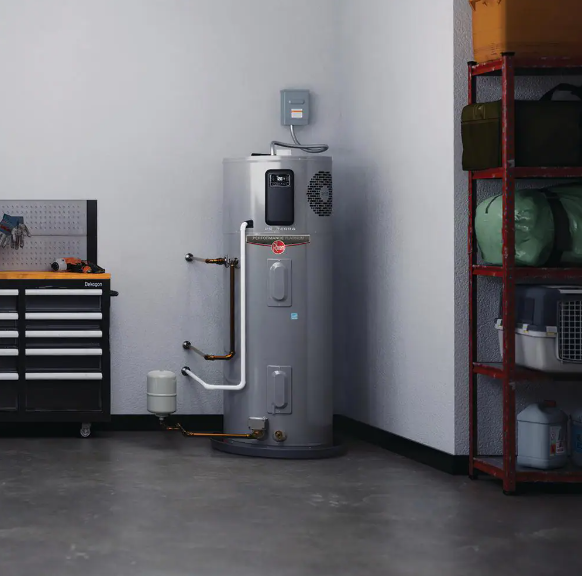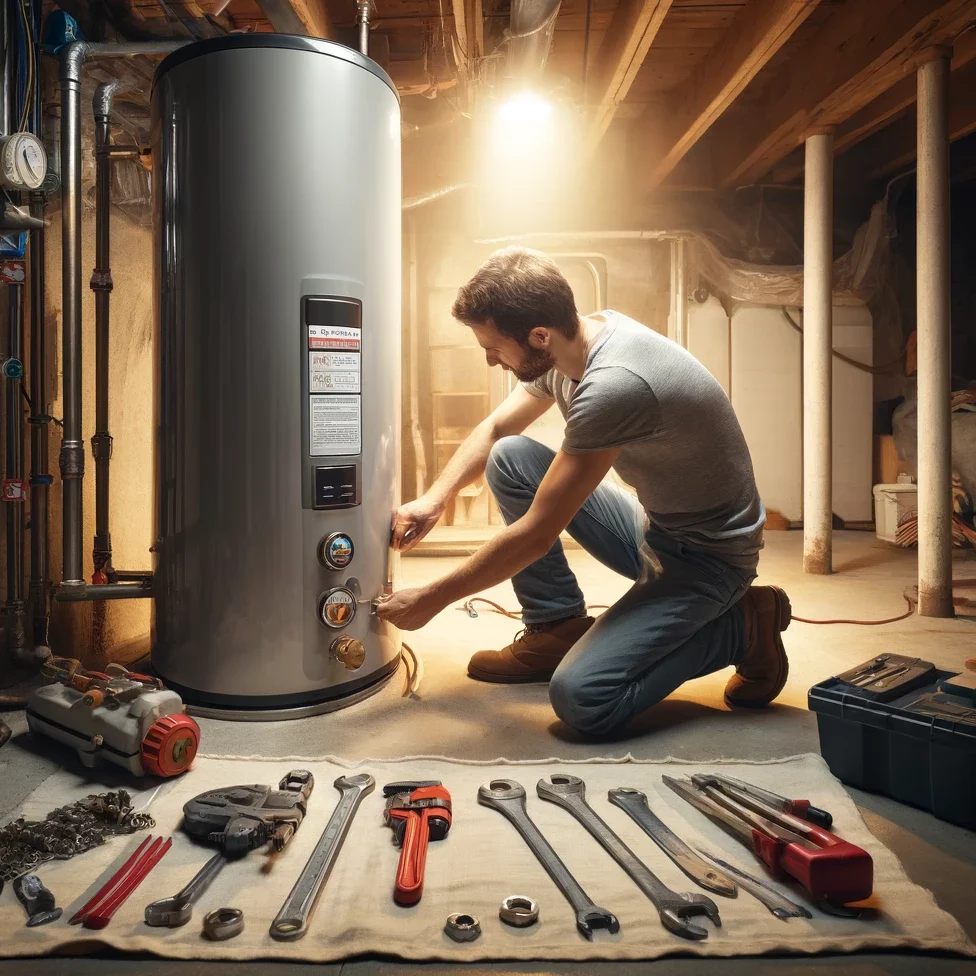
Heat Pump Water Heaters
If you’re shopping around for a new water heater you will likely come across a heat pump water heater. Well, what is it?
Essentially, a heat pump water heater transfers heat from the air around it and uses it to warm up water. This process involves compression and refrigerant, and is in a lot of ways similar to how a refrigerator works, but the primary idea is that a heat pump transfers heat rather than generating it directly, making it extremely energy efficient when compared to other water heaters.
Benefits
The primary benefit of a heat pump water heater is the energy efficiency. These units can be three or more times energy-efficient than traditional electric water heaters. This efficiency translates to lower electricity bills and a smaller carbon footprint. In the world of rising energy costs and environmental concerns, a heat pump water heater is a great option if you’re looking for maximum energy efficiency.
As of 2024 in the United States, your heat pump water heater qualifies for a tax credit of 30% off the cost, up to $2000 including installation. Learn more about this tax credit and eligible products by visiting Energy Star.
What are the Downsides?
So, what are the downsides? Compared to a standard electric water heater, the heat pump version will take longer to heat water in comparison. People will often go up a size when upgrading to a heat pump water heater for this reason. These systems also need space — typically, a room with at least 1,000 cubic feet of air-flow to operate efficiently. They also work best in climates where the space remains between 40°F and 90°F year-round. So, this might not work for every situation, but if you have space in a basement, it could be a great option. A heat pump water heater is also typically more expensive than your traditional style water heater tank, but it might be comparable in price to some tankless water heaters.
Installation: What to Expect

Installing a heat pump water heater is a project that requires a little bit of know-how, but doesn’t necessarily require a professional installer if you know what you’re doing. The difficulty of the install will depend on the model water heater you purchase and if you need to do anything else like install an electric receptacle or install a drain for your condensate line.
Some heat pump water heaters can plug directly into a 120v outlet, making the switch from a standard gas water heater even easier. Check out this article from Rheem discussing key features of their 120v units. 120-Volt Rheem ProTerra Plug-in Heat Pump Water Heaters Designed for Easy Gas Unit Replacement. If you don’t already have a 240v outlet readily available, a 120v option could make your water heater installation relatively easy.
Is It Right for You?
Considering a heat pump water heater is a smart move for a homeowner looking to increase their home energy efficiency. It’s ideal if you have the space for installation. If you live further north, outside of a more temperate climate, you still might consider getting a hybrid unit or talking with some local contractors and see what is working for people in your area. That being said, if your home is due for a water heater upgrade, switching to a heat pump model could be a great investment in the long run.
Interested in learning more? The U.S. Department of Energy has a great infographic comparing different types of water heaters. Check it out at the link below.


